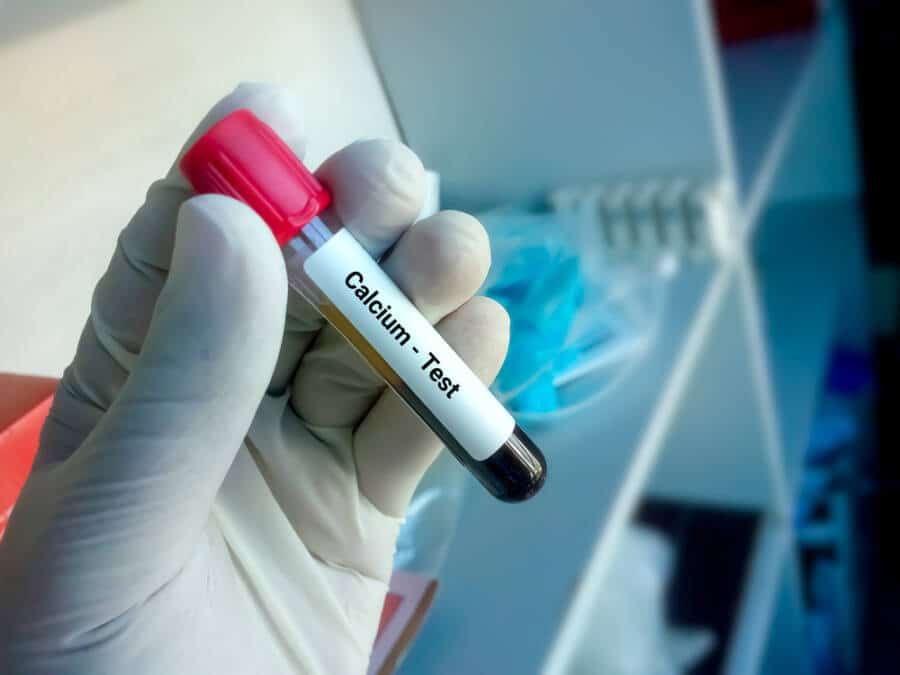Are you taking too much vitamin D?
This is one of those vitamins that play a vital role in our health, and because of this, taking vitamin D supplements is a must for anyone. But things are not that simple. Before starting to take this vitamin, you should consult your doctor.
When they hear vitamins, most people see them as inoffensive, but in reality, there are some vitamins that can damage your health if you are not careful and take too much of them. Vitamin D is one of those vitamins.
Yes, it’s good for the bones and your immune system, but taking vitamin D without prior blood tests can be risky. Vitamin D deficiency is widespread, and this leads to many cases when those who have normal levels take the supplements and end up with a vitamin D overdose. Find out what signs to look out for!

1. Too much calcium in the blood
Vitamin D is essential because it helps you absorb calcium from the food you eat, and as a result, you’ll have stronger bones. Taking too much of it, though, can raise the calcium levels in the blood, and this is not good news.
When you have too much calcium in the blood, also known as hypercalcemia, you will experience a series of symptoms. Loss of appetite, heart issues, frequent urination, dehydration, and fatigue are among the most common ones.
The normal levels of calcium in your blood are between 8.5 and 10.8 mg/dL. Whatever the cause, these levels are considered hypercalcemia.
Most of the time, those who develop hypercalcemia take megadoses of vitamin D for a longer period of time, generally because of an initial deficiency. According to research, if you take more than 10,000 IU of vitamin D daily, it’s time for some blood tests.
Hypercalcemia is a serious condition that threatens your life, and because of this, immediate action should be taken in case you notice any symptoms.
2. Kidney problems
When you have too much calcium in your blood because of taking too much vitamin D, your kidneys may suffer. Why is this happening? Your body will try to get rid of all the excess calcium, and you will start to urinate more. Unfortunately, this will cause dehydration, and this puts a strain on your kidneys, which are already stressed because they are trying to balance the calcium levels.
All that calcium that doesn’t get eliminated will continue to circulate in your bloodstream, and over time, calcium deposits can start to form in your kidneys. This can damage kidney tissue and reduce their ability to function properly. Kidney stones might appear, and they are incredibly painful and further reduce the ability of your kidneys to do their job.
High levels of calcium in your blood also cause the blood vessels in the kidneys to constrict, which reduces blood flow to the kidneys. The decreased blood flow can impair your ability to filter waste from your blood, potentially leading to kidney injury or even kidney failure.
3. Gastrointestinal symptoms
An excess of vitamin D is also known to cause various gastrointestinal symptoms. Vomiting, constipation, diarrhea, and poor appetite can all appear. However, not all people have the same experience.
For example, we have this case study of a woman who took a supplement that was supposed to contain a normal amount of vitamin D, but in reality that supplement had 78 times more vitamin D than what the label was indicating.
As a result, her level of calcium became incredibly high, and this caused severe nausea and weight loss.
Another case is the one of an 18-month-old child who was prescribed 50,000 IU of vitamin D3 every day for three months. This is far more than the recommended amount for a child this age. As a result, the child experienced severe symptoms, including diarrhea and stomach pain.
Once the vitamin D supplements were stopped, the child’s symptoms went away.
4. Altered mental state
This is one of the most serious symptoms of too much vitamin D, and if you feel like you are having trouble with this, seek medical help as fast as possible.
When the levels of calcium are too high, this can affect brain function. Confusion, depression, psychosis, and, in extreme cases, coma can all affect those who have hypercalcemia.
In 2021, there was a case involving a 64-year-old man who accidentally took 200,000 IU of vitamin D per day. This is far more than the recommended amount, and when he was hospitalized, he was confused and agitated. While he stayed in the hospital, these symptoms persisted for 10 days.
It took 18 days until his calcium levels dropped and came back to normal, and as a result, his mental state slowly improved.
All of this happened because the man misunderstood the medication instructions and took far more vitamin D than he needed.

Risk factors
Some risk factors make you more susceptible to vitamin D overdose. Most of them are related to various conditions you might suffer from. It’s important to note that you cannot get vitamin D toxicity from too much sun exposure, as the body regulates the amount of vitamin D produced by the skin.
Some people just don’t respond to the standard doses. This is not a problem, as they can take higher doses, but because of this, they should be closely monitored.
If you have osteoporosis, osteomalacia, or multiple sclerosis (MS), you should know that the treatment of these conditions requires high doses of vitamin D, and this can lead to an overdose.
There are also some conditions, such as gastric bypass surgery, celiac disease, and inflammatory bowel disease (IBD), that can impair the absorption of vitamins and nutrients, and as a result, you may be prescribed higher doses than usual.
How is it treated?
First of all, you will immediately stop taking any vitamin D and calcium, including over-the-counter supplements and prescription medications. Then an important step is the IV fluids. Since someone who is suffering from a vitamin D overdose is probably extremely dehydrated, they will need additional fluids. This will also dilute the calcium in the blood and help it be eliminated by the kidneys.
Corticosteroids might also be used, as they reduce inflammation and can also reduce calcium absorption in the intestines. Bisphosphonates are drugs that are known to reduce bone resorption, and in this way, the calcium will no longer be released into the bloodstream.
In severe cases when significant kidney damage is present or in case the patient is not responding to other treatments, hemodialysis can be an option. This process filters excess calcium and other waste products directly from the blood while also protecting the kidneys.
Do you have any unpleasant experiences with vitamin D? Tell us in the comments all about it and how you managed the situation.
As you can see, over-the-counter vitamins and supplements can be more dangerous than they seem and because of this is better to be informed. Here are 7 Ingredients in Supplements to AVOID at All Costs
If you want to learn more about how vitamin D works and how it’s helping our bodies, this book might be useful: The Vitamin D Solution: A 3-Step Strategy to Cure Our Most Common Health Problems






